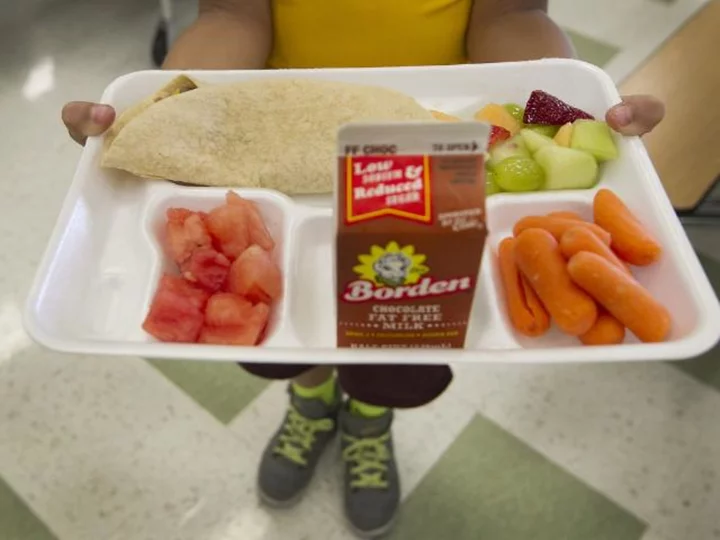Nearly 5 million children in eight states could lose out on some extra funds for food unless their state officials sign up for a federal relief program by Friday.
The Pandemic Electronic Benefits Transfer program, known as P-EBT, is providing $120 over the summer to families whose children qualify for free or reduced-price meals or attend schools in low-income areas where all students receive free meals.
While the vast majority of states are participating in the program this summer, Alaska, Idaho, Montana, Mississippi, Missouri, New Hampshire, South Dakota and Texas have yet to join.
The funding is crucial for families who are having trouble affording groceries, housing, utilities and other necessities, which are all more expensive now, advocates say. Many of these parents depend on the free or reduced-price breakfast and lunch program during the school year, but only about 1 in 7 eligible kids receive meals over the summer.
"For a lot of families that are struggling, the summer is the hungriest time of the year," said Lisa Davis, senior vice president at Share Our Strength's No Kid Hungry campaign.
The P-EBT program was launched in the spring of 2020, when the Covid-19 pandemic forced schools to close. The funds provided parents with money to buy groceries to make up for the meals their children were missing in school.
Congress renewed the measure several times, most recently in December as part of the fiscal 2023 spending package. But this final extension cut the benefit to help offset the cost of a permanent summer EBT program that starts next year. Lawmakers also limited it to school-age children -- younger kids are not eligible this summer because the Covid-19 public health emergency has ended.
Last summer, families received $391 -- providing a total of $13.7 billion in benefits to 35 million kids, according to the US Department of Agriculture.
Alaska and South Dakota were the only states not to participate, while Idaho only provided the funds to younger children in day care programs, said Kelsey Boone, a senior child nutrition policy analyst at the Food Research & Action Center.
Some states have said they don't have the capacity to administer the summer program this year, according to Boone. However, she points out that each of the eight states participated in the summer P-EBT program either in 2021 or 2022, or both years.
Mississippi opted not to sign up for this summer's program now that the Covid-19 public health emergency has ended, the state's Department of Human Services said.
"Pandemic Electronic Benefits Transfer (P-EBT) was a supplemental benefit for households with students who temporarily lost access to free or reduced-price school meals due to pandemic-related school closures or distance learning," the agency said. "Existing pre-pandemic summer feeding programs continue to operate across Mississippi school districts."
Alaska, meanwhile, decided not to apply for the summer benefits because of staffing constraints, said Gavin Northey, child nutrition program manager at the state's Department of Education & Early Development.
Agencies in the other six states did not return requests for comment.
Agriculture Secretary Tom Vilsack has urged the states that have yet to sign up for the summer program to do so, noting in a tweet in June that "hunger doesn't take a break when school is out for the summer."
"I encourage these governors to enroll their states and ensure millions of children can receive the nutritional benefits essential to our nation's economic health and security," he tweeted.
Struggling families
In Texas, at least 3.7 million children would be eligible for the summer P-EBT program, said Mia Medina, senior program manager for No Kid Hungry Texas. Some 40% of parents of children in public school experienced food insecurity, including skipping meals or running out of food, in the past 12 months, according to a poll the nonprofit group commissioned earlier this year.
Last summer, about 3.5 million children in the Lone Star State received a total of more than $1.4 billion in benefits, according to Gov. Greg Abbott's office.
Families in Montana are also having a tougher time affording food, said Lorianne Burhop, chief policy officer at the Montana Food Bank Network. Some local pantries are seeing record demand, and parents are visiting multiple times a month.
Some 32,000 children received a total of $12.5 million in summer P-EBT benefits last year, according to the state Department of Public Health and Human Services. But this year, officials said they were concerned about administering the program and about whether it was needed, according to Burhop.
"Our state is really missing a key opportunity to help Montana families keep food on the table," she said.

